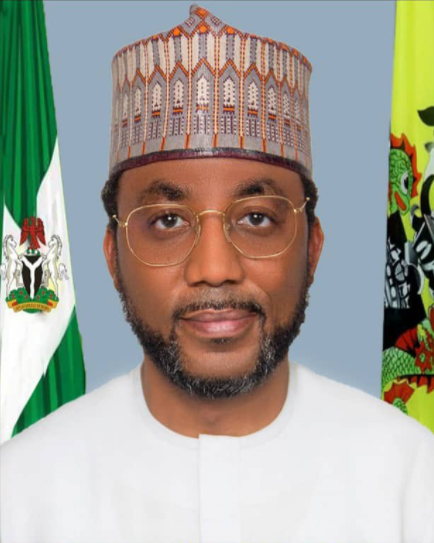
The Nigerian Ports Authority (NPA) , the Seaport Terminal Operators Association of Nigeria (STOAN) and other stakeholders have asked the government to prioritise the use of barges to evacuate cargo from the Lekki deep seaport in Lagos so as not to worsen the traffic situation along the Lekki corridor.
While presenting a paper titled ‘Lekki Deep Seaport: Gains, Challenges and Potential Threat To Lagos Port’ during the retreat of the League of Maritime Editors in Lagos on Thursday, NPA Managing Director, Mohammed Bello-Koko, said the neglect of hinterland connectivity at the new Lekki port is likely to be an albatross for the optimisation of the benefits of the project.
“With the immense benefits that Lekki deep seaport is poised to offer in changing the landscape of port operations, there are the constraints of hinterland connectivity. This is considered a fundamental flaw of the planning process. It is important to note that the port is segmented into two: there is the aspect of maritime space and hinterland connectivity for cargo evacuation.
“While attention has been on maritime space, there is complete neglect of hinterland connectivity at Lekki port. This is likely to be an albatross for the optimisation of the benefits of the project investment as well as the efficiency of the port operations.
“For instance, there is no rail connectivity at Lekki port. Even the road connection is grossly inadequate. The only way out is to embrace barge operations in the short run. This does not foreclose the need for multi-modalism and inter-modalism that should guarantee the fluidity of cargo evacuation and ultimately efficiency of port operations,” the NPA Managing Director, who was represented the Assistant General Manager Operations, Ayo Durowaiye, said.
He said while there is no doubt that operationalisation of Lekki port would be a game changer not only for NPAs’ operations but for the Nigerian economy, it is important that necessary logistics infrastructure be put in place to optimise the benefits and guarantee positive impacts.
In his presentation, Spokesman of the Seaport Terminal Operators Association of Nigeria (STOAN), Dr. Bolaji Akinola, said reliance on the Lekki road for cargo evacuation from the new port would lead to gridlock on the Lekki corridor.
He said a rail line and barging option should have been fully incorporated into the design of the deep seaport.
“I go to the Pan Atlantic University (PAU) in Ibeju-Lekki once a week. Every time I go towards that axis, I spend three hours on the road to go and another three hours back. There aren’t port trucks on the road yet because the port has not commenced operation. When the port commences operation and trucks besiege the road, it will be total chaos. It will amount to replicating the Apapa gridlock on the Lekki corridor,” he said.
Akinola also said that the new Lekki port is not a threat to the existing seaports in Lagos and other parts of the country.
“I think Nigeria needs to develop these new seaports to cater for our growing population. The new deep seaports including Lekki, Badagry, Ondo and Ibom will all have their individual niche and competitive advantage. They will all complement each other. No one will be an existential threat to the other,” he added.
Other dignitaries present at the event include Customs Zonal Coordinator for Zone A, ACG Adeyanju Aremu who represented the Comptroller-General of Customs Col. Hameed Ali (rtd); Isichei Osamgbi who represented the Director General of the Nigerian Maritime Administration and Safety Agency (NIMASA), Dr. Bashir Jamoh, former Managing Director, National Inland Waterways Authority (NIWA), Mrs. Chinwe Ezenwa and the Controller, Apapa Area Command of the Nigeria Customs Service, Comptroller Yusuf Malanta, among others.